
THE VOICE OF INTERNATIONAL LITHUANIA
|
VilNews has its own Google archive! Type a word in the above search box to find any article.
You can also follow us on Facebook. We have two different pages. Click to open and join.
|
Front page
- Posted by - (1) Comment
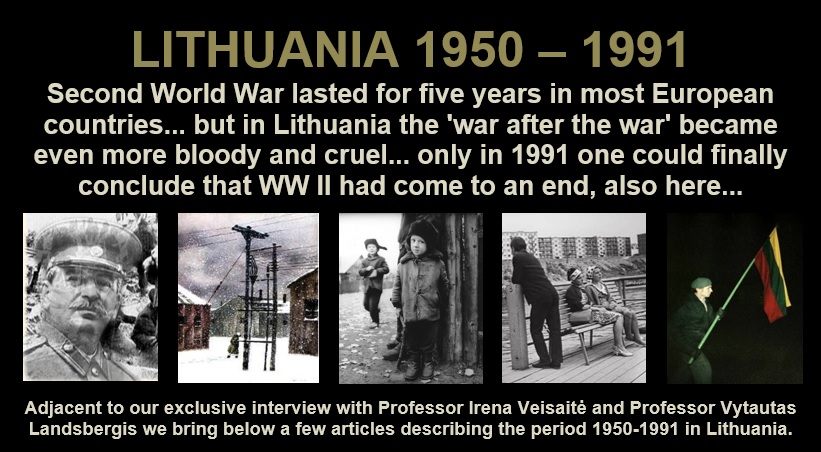
 |
THE WEST IGNORED ALL SOVIET ABUSES! |
 |
CHRISTMAS IN SIBERIA
A Lithuanian family at Lena river “The tents were freezing cold, harsh, and distressing; so, the adults decided to build better living conditions. "We can build barracks," said one Lithuanian, "We can catch the logs in the Lena River." The men waded barefoot into the icy water, caught floating logs, brought them to shore, and built the barracks. They covered the outside walls with snow and ice which they learned would help keep out the frigid temperature. They also found a large iron stove, which they placed in the middle of the building. https://vilnews.com/2011-01-christmas-in-siberia |
 |
DEPORTEES RETURNING FROM SIBERIA
It must have been quite a shock for the surviving deportees to return ‘home’ from Siberia to Lithuania in the 1950s and 1960s. The country they had loved and cared so much about was now ruled and mismanaged by Moscow-believing Communists. Since 1941 more than 300.000 persons had been deported to Siberia, with tens of thousands dying en route to or on the permafrost. The 1950s was the decade when Lithuania's 10-year guerrilla war against the superior Soviet forces came to an end, with the result that 22.000 Lithuanian forest brothers and about 70.000 Soviet soldiers had lost their lives, thus the longest and bloodiest guerrilla war of modern Europe. https://vilnews.com/2012-04-deportees-returning-%E2%80%98home%E2%80%99-from-siberia |
 |
LITHUANIA IN THE 1960s PHOTO: View from Antakalnis towards the (by then) new district Žirmūnai. By: Antanas Sutkus, 1964 |
 |
FINALLY … |
- Bookmark :
- Digg
- del.icio.us
- Stumbleupon
- Redit it
- Posted by - (2) Comment
Exclusive VilNews interview with Professor Landsbergis, Veisaitė
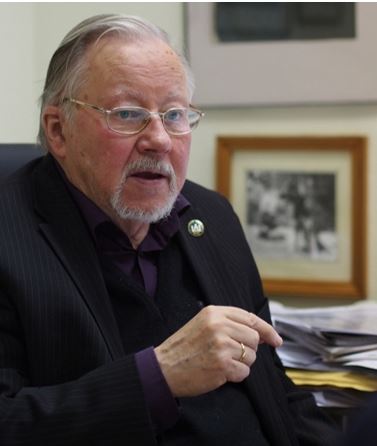 |
 |
PROFESSOR IRENA VEISAITĖ AND PROFESSOR VYTAUTAS LANDSBERGIS.
Photo: Patrick Murphy
Journalist: Dalia Cidzikaitė
Questions prepared by Aage Myhre
Today we have the pleasure of presenting a large, exclusive interview with two professors who have meant infinitely much for their homeland Lithuania. In today's interview, we focus on their memories, experiences of and thoughts about the following eras of their lives, over the years 1930-1960:
· CHILDHOOD IN KAUNAS, LITHUANIA’S INTERWAR CAPITAL
· MEMORIES OF ANTANAS SMETONA, LITHUANIA’S PRESIDENT 1926-1940
· PREWAR COMMUNISM IN LITHUANIA?
· ADOLF HITLER – NAZISM – PREWAR GERMANY
· TO BE A LITHUANIAN JEW (LITVAK) DURING WORLD WAR II
· THE LANDSBERGIS FAMILY RELATIONSHIP WITH JEWS
· LITHUANIA’S 9-YEAR BLOODY PARTISAN WAR AGAINST THE SOVIET UNION
- Bookmark :
- Digg
- del.icio.us
- Stumbleupon
- Redit it
- Posted by - (0) Comment
Lithuania 1930 – 1960
from happy freedom and growth… to war, people extermination, deportations, mass murder, emigration
to the West, guerrilla war and the beginning of a mostly depressive life under Soviet oppression…
Adjacent to our exclusive interview with Professor Irena Veisaitė and Professor Vytautas Landsbergis we bring below a few articles describing the period 1930-1960 in Lithuania.
- Bookmark :
- Digg
- del.icio.us
- Stumbleupon
- Redit it
- Posted by - (0) Comment
National rebirth 1920-1940
Lithuania declared independence in 1918, after 123 years of mostly Russian occupation. The interwar years were very successful and the country prospered immensely. Kaunas was the capital for the period 1919-1940, after Poland occupied Vilnius and southern Lithuania.
https://vilnews.com/2012-11-
https://vilnews.com/2012-04-
https://vilnews.com/2011-03-
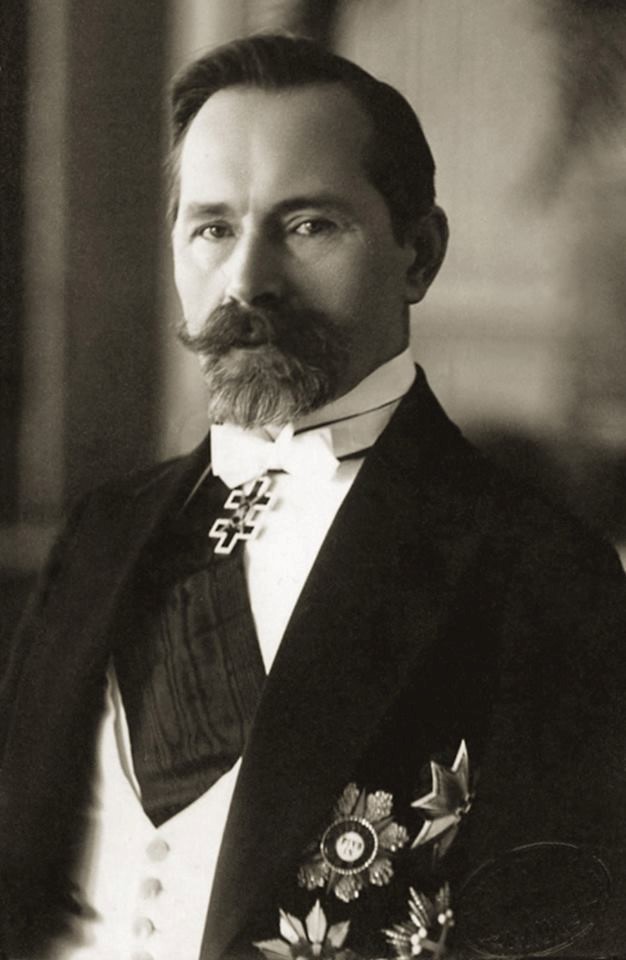
- Bookmark :
- Digg
- del.icio.us
- Stumbleupon
- Redit it
- Posted by - (0) Comment
Holocaust killed 95% of
all Jews in Lithuania
The Holocaust in Nazi-occupied Lithuania resulted in the near total destruction of Lithuania's Jewish population. Out of more than 200.000, around 95% were murdered during WWII, the most tragic, worst example of Holocaust in the whole world. https://vilnews.com/2011-01-holocaust-in-lithuania

- Bookmark :
- Digg
- del.icio.us
- Stumbleupon
- Redit it
- Posted by - (0) Comment
300.000 innocent people were deported to Siberia
During 1940–1953, some 132.000 Lithuanians were deported to remote areas of the USSR. More than 70% were women and children. 30.000 died there due to climate, hard slave work and starvation. 50.000 were not able to return to Lithuania. During the same period, another 200.000 people were prisoned and 150.000 of them were sent to Siberian Gulags.
https://vilnews.com/2010-12-1941-1953-300-000-lithuanians-we…
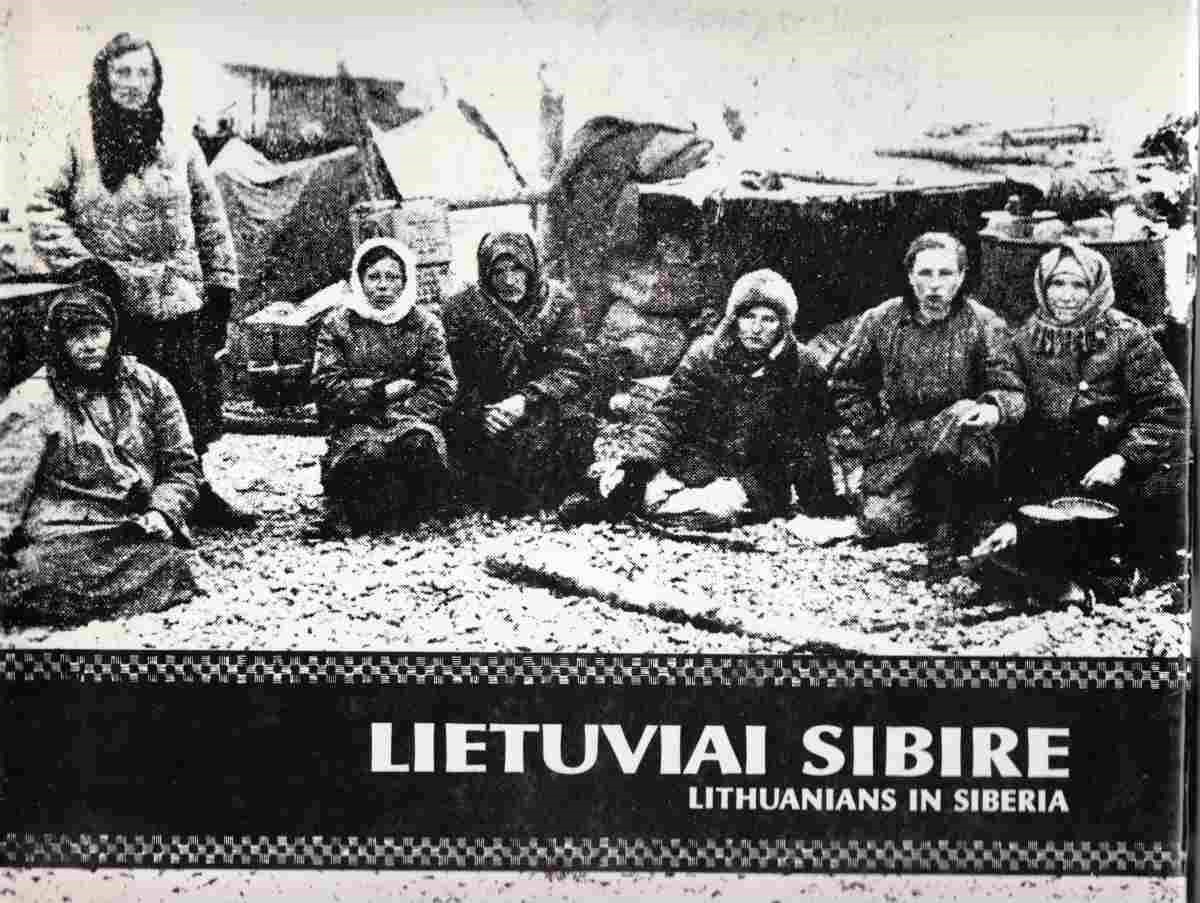
- Bookmark :
- Digg
- del.icio.us
- Stumbleupon
- Redit it
- Posted by - (0) Comment
Modern Europe's longest, bloodiest partisan war
22.000 Lithuanian 'forest brothers' and 70.000 Soviet soldiers were killed in modern Europe's longest and bloodiest guerrilla war, after the Balts withdrew into the woods to organize their powerful armed partisan resistance when the Soviet Union re-occupied the Baltic States in 1944.
https://vilnews.com/2012-12-5391
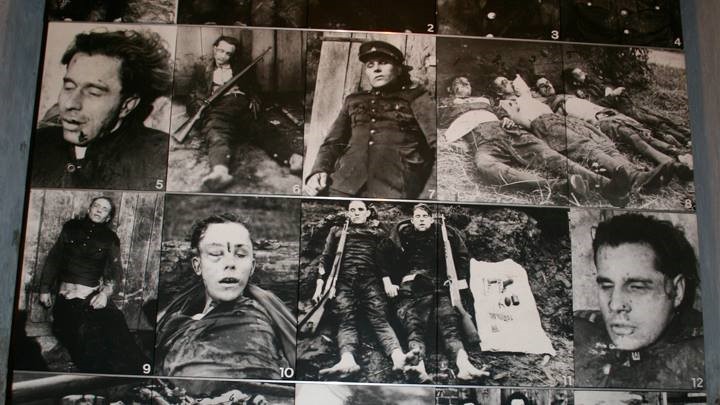
- Bookmark :
- Digg
- del.icio.us
- Stumbleupon
- Redit it
- Posted by - (0) Comment
How did Soviet communism
influence Lithuania?
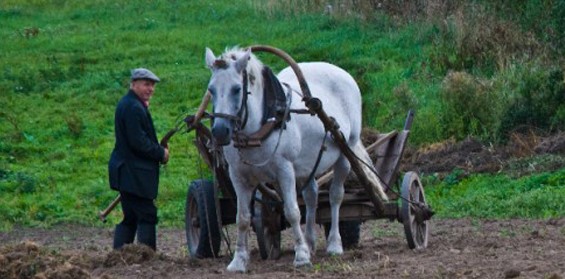
Photo: http://www.landesa.org/where-we-work/more/lithuania/
By Dr. Valdas Samonis,
Toronto, Canada
In 1940, independent Lithuania produced per capita 1.9 times more meat, 2.8 times more milk, had 1.9 times more cattle and 2.7 times more pigs than Soviet Union. After 50 years of allegedly astounding economic progress, Soviet Lithuania had become dependent on subsidies from Moscow. To the extent that this assertion is true, how is this possible if not for the inefficiencies caused by the forcefully imposed system of central planning with its associated distortions?
Noncommunist Lithuania fed and clothed its citizens without any assistance from abroad during the interwar independence period. And the levels of agricultural production were high by comparison to the Soviet Union;
Following its forceful incorporation into the Union of Soviet Socialist Republics in 1940, Lithuania was subjected to the Soviet development model based on Marxism-Leninism, as interpreted by the Communist Party of the Soviet Union, as its theoretical underpinning; the first "scientifically based economic system in human history", as Bolsheviks claimed. The Bolshevik interpretation of economic processes and development goals was made obligatory in both the theoretical and practical dimensions. New methods of economic management /central planning/ were introduced which deeply changed the entire decision-making processes. The country's economic administration was completely overhauled. The Soviet occupation of Lithuania lasted nearly half a century.
|
Valdas Samonis: "I believe that the abject failure of Western experts (economists, political scientists, sociologists, etc) to foresee the impending USSR's total collapse under the weight of the communist system's own inefficiency (like an old mushroom in Lithuania's forest) was largely due to Western anti-anti-communism; it grossly exaggerated the Soviet communist regime's stability and legitimacy. The so called "scientific-based system" lie repeated by the Soviets with Goebbels efficiency and force, gave rise to that Western anti-anti-communism and it was the greatest Bolshevik deception (brilliant, indeed!) that all those "good-heart" Western intellectuals fell for. What an intellectual shame to Western universities and other elites!
|
- Bookmark :
- Digg
- del.icio.us
- Stumbleupon
- Redit it
- Posted by - (0) Comment
Kaunas pictures from the 1930s

HAPPY EASTER 1938! FROM THE MAGAZINE "POLICE".
PHOTO: I.GIRČIO.
- Bookmark :
- Digg
- del.icio.us
- Stumbleupon
- Redit it
- Posted by - (12) Comment
Lithuanian DPs
in Australia after WW2

DISPLACED PERSONS FROM LITHUANIA ARRIVING IN AUSTRALIA –
MRS LYDIA DRESCHERIS WITH HER CHILDREN AND A FRIEND
Image Copyright Western Australian Museum
By Jura Reilly
After World War Two Australia agreed to provide a haven for 170,000 refugees from war-torn Europe. This was the beginning of a large-scale immigration program undertaken by the Australian government, which felt that the population needed to grow so that the country could defend itself better, and have enough people to fill all the jobs that were available. Most of the refugees arrived during 1949 and 1950. Before WW2, more than 90% of Australians were from a British or Irish background. Presently, this proportion has dropped to approximately 80%. A total of 9906 Lithuanian DPs came to Australia between 1947 and 1953. In the 2011 Census, 13,594 adults acknowledged Lithuanian origins.
Read more...- Bookmark :
- Digg
- del.icio.us
- Stumbleupon
- Redit it
- Posted by - (7) Comment
How to access all our 18
sub-sections here in VilNews
Click on the links below to access each of VilNews' 18 sections. All our sections have their own distinct, different contents, as the headlines suggest. You can also scroll forward to new pages by clicking NEXT at the bottom of each page. We hope you have time to study our many articles!
- Bookmark :
- Digg
- del.icio.us
- Stumbleupon
- Redit it
- Posted by - (5) Comment
VilNews is back!
Our publication VilNews has been inactive over the past two years. But here we are again, ready with a fresh new issue. We wish old and new readers worldwide warmly welcome!
“New” VilNews consists of 18 sections that you can immerse yourself into by clicking on the link buttons at the top of each page.
If “old” VilNews had been printed on paper, it would become a book of more than 7,000 pages of totally unique reading material about historical and contemporary Lithuania. This huge material is still available. All old and new articles are sorted by topics, in our 18 sections.
The VilNews concept is a unique combination of informative articles, social media (blogs and commentaries) and background articles about Lithuanian people, history, culture, politics, tourism, economy and much more. We do very much appreciate feedback and comments from our readers.
I wish you some good reading, and please do not hesitate to contact us!
Say what you mean – mean what you say – don`t be mean
Aage Myhre
Editor-in-Chief
aage.myhre@VilNews.com
- Bookmark :
- Digg
- del.icio.us
- Stumbleupon
- Redit it
- Posted by - (0) Comment
The professors who showed
Lithuania the path to its future
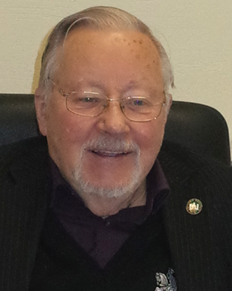

PROFESSOR VYTAUTAS LANDSBERGIS – PROFESSOR IRENA VEISAITE
Journalist: Dalia Cidzikaite
Photographer: Patrick Murphy
Questions prepared by Aage Myhre
A few days ago we sat down with two of Lithuania's most famous professors for a so-called double interview. We wish in the future to run similar double interviews here in VilNews; with leading Lithuanians in politics, economics, culture, science and so on. Simply because we think this may give you, dear readers, new insights and knowledge about the persons and also about historical and contemporary Lithuania.
Professor Vytautas Landsbergis and Professor Irena Veisaite were both born in Lithuania’s interwar capital Kaunas around 1930 – she a Jew who miraculously survived Holocaust, he a genetic Lithuanian who came to lead Lithuania’s revolution against the Soviet occupiers 25 years ago.
The interview with the professors will be published in our next edition of VilNews.
- Bookmark :
- Digg
- del.icio.us
- Stumbleupon
- Redit it
- Posted by - (0) Comment
Fearful of Russia, Lithuanian
volunteers sign up fearing
a repeat of Ukraine

MEMBERS OF THE LITHUANIAN RIFLEMEN’S ASSOCIATION ON A WEEKEND EXERCISE
Finishing his working week as a lawyer, Robert Juodka puts on his fatigues, loads his assault rifles into the car and heads off to the woods to take part in training. He and his comrades regard their “war games” as deadly serious; preparations for resisting a Russian invasion.
The Lithuanian Riflemen’s Union, which was disbanded by the country’s communist government, now has 10,000 members. New recruits join every week. The age range is wide, but a hard nucleus is being formed of former service personnel. And experienced foreign volunteers may be admitted in the future. Many fear that what has happened to Ukraine may be revisited in Lithuania.
THIS IS FROM AN ARTICLE IN THE BRITISH NEWSPAPER “INDEPENDENCE”.
Read the full article here: http://www.independent.co.uk/news/world/europe/fearful-of-russia-lithuanian-volunteers-sign-up-fearing-a-repeat-of-ukraine-10126321.html
- Bookmark :
- Digg
- del.icio.us
- Stumbleupon
- Redit it
- Posted by - (2) Comment
THIS ARTICLE, ABOUT THE HISTORY OF LITHUANIA, REACHED
ONE MILLION PERSONS AROUND THE WORLD IN ONLY ONE MONTH!
Lithuania – a country
you may think you know –
but do you really?
Text/research: Aage Myhre
We posted this article on one of our VilNews Facebook pages (www.facebook.com/VilNews) a few weeks ago. The article is about a seemingly 'boring' theme, namely the history of Lithuania.
But then it turns out that the article gets huge attention and reaches close to one million people worldwide in a matter of days. Probably never before have so many in such a short time been learning about the History of Lithuania!
For us who have worked with VilNews for many years this is yet another confirmation that Lithuania is of great interest to people around the globe if things are presented in attractive ways.

Did you know that Lithuania was a world super power – much longer than
USA has been – and Europe's largest country for more than 300 years
(1300-1600), stretching from the Baltic Sea to the Black Sea?
https://vilnews.com/2012-02-a-world-superpower-for-300-years
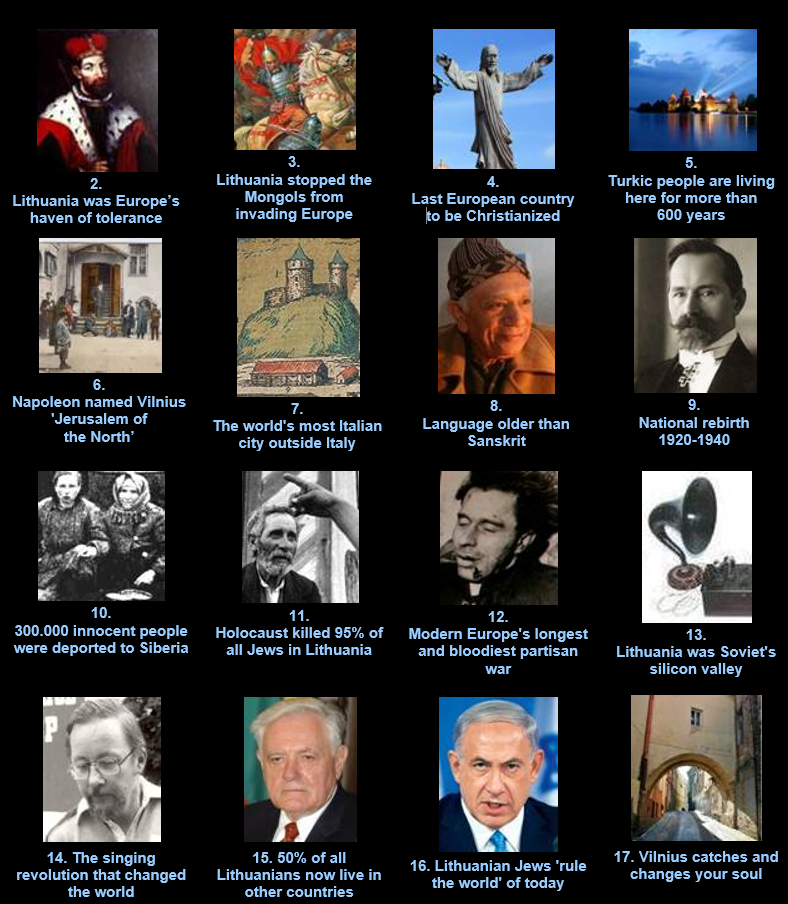
Read more...
- Bookmark :
- Digg
- del.icio.us
- Stumbleupon
- Redit it
- Posted by - (0) Comment
From Chicago to Paris – then by
car through Europe to Lithuania!

AMERICAN-LTUHUANIAN DIANA PAULIŪTĖ CLARISSE,
WITH HUSBAND AND SON, ON THEIR WAY THROUGH EUROPE
By Diana Pauliūtė Clarisse
Phd in Chemistry, Chicago USA
For about an hour now the two GPSs have been cooing two different directions. Our Tom Tom brought from home was telling us to ”turn left when possible”, while the GPS mounted in the rental car is having us move ever Northeast. My husband is saying we should listen to our Tom Tom. That would have been a good idea I think as we come to an abrupt standstill. The cars in front of us line up in a row looking like it goes on forever. Some of the drivers are standing next to their cars chatting away with other drivers as though they had been there all day. There must have been an accident, I say. The time is late in the afternoon, we have been perhaps 20 hrs on the road.
Read more...- Bookmark :
- Digg
- del.icio.us
- Stumbleupon
- Redit it
VilNews e-magazine is published in Vilnius, Lithuania. Editor-in-Chief: Mr. Aage Myhre. Inquires to the editors: editor@VilNews.com.
Code of Ethics: See Section 2 – about VilNews. VilNews is not responsible for content on external links/web pages.
HOW TO ADVERTISE IN VILNEWS.
All content is copyrighted © 2011. UAB ‘VilNews’.

 Click on the buttons to open and read each of VilNews' 18 sub-sections
Click on the buttons to open and read each of VilNews' 18 sub-sections 







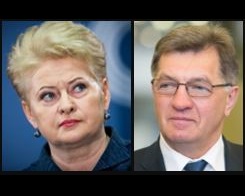









.jpg)



